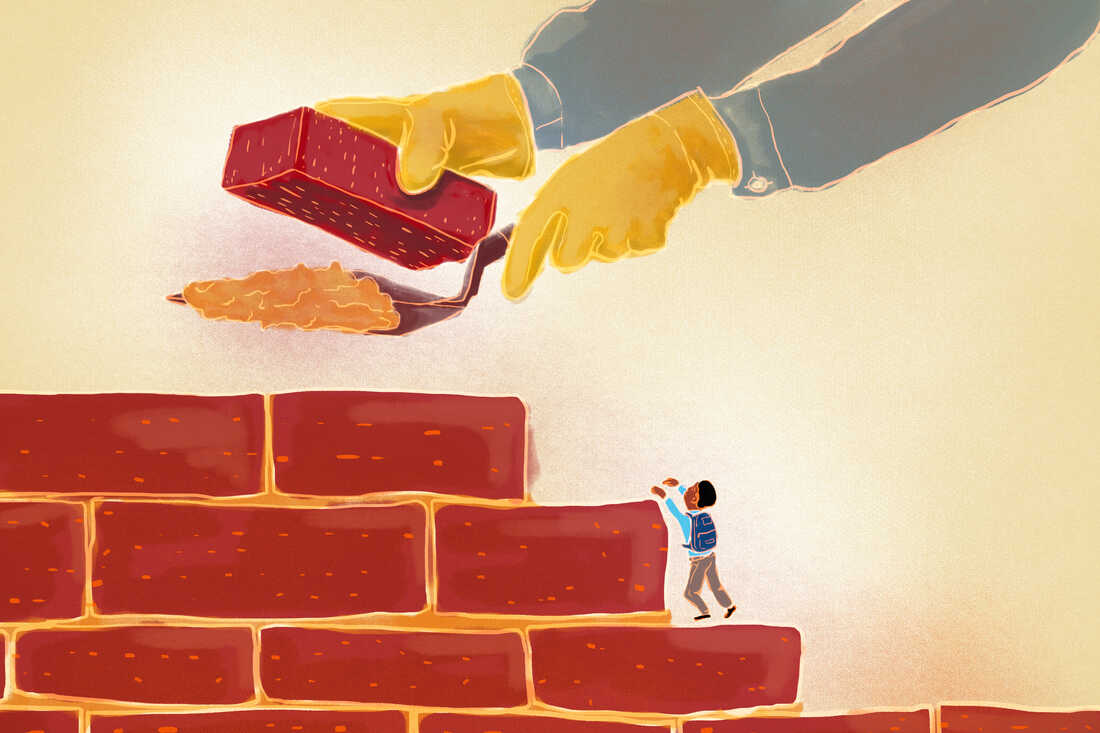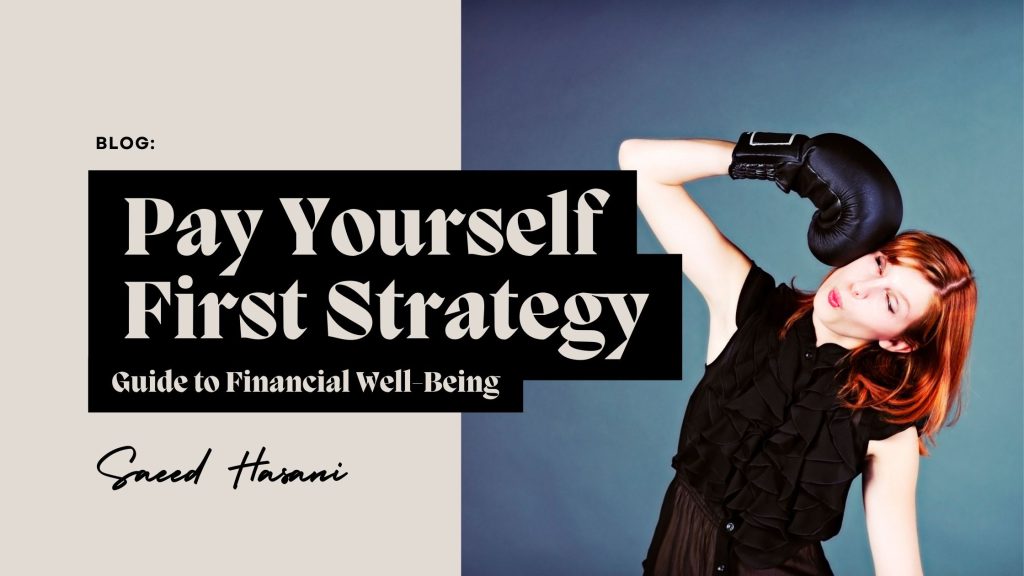Mastering Grit: The Ultimate Guide to Angela Duckworth’s Grit

Ever wondered what sets true achievers apart? It’s the unwavering force of grit, the secret sauce turning dreams into reality. In Angela Duckworth’s “Grit,” we uncover the roadmap to this elusive power that defines extraordinary success.
Duckworth’s groundbreaking work goes beyond a book; it’s a key to unlocking the mysteries of passion and perseverance. Get ready to navigate the transformative landscape of grit.
Why care about grit? In a world fixated on talent, grit emerges as the unsung hero, and understanding it might just be your missing link to lasting success. Ready to explore? Let’s dive in!
Angela Duckworth’s Grit: A Brief Overview
Here, let’s dive into the world of grit, Angela Duckworth’s style. It’s been a wild ride, and trust me, you’re in for a treat!
Angela Duckworth’s Background and Expertise
First things first, let’s talk about the brains behind the operation – Angela Duckworth. Picture this: a psychology powerhouse with the charisma to match. Duckworth isn’t just any psychologist; she’s got a background that makes you sit up and take notice. Teaching math in middle school? Check. Consulting for the White House? Double-check. This lady knows her stuff!
What sets Duckworth apart is her focus on grit – that magical quality that pushes you to chase your dreams, no matter how wild they may seem. So, yeah, she’s not your typical psychologist. She’s the kind of person who makes you want to grab life by the horns and give it a good shake.
The Inspiration Behind Writing “Grit”
Now, let’s talk about what drove Duckworth to pen down the wisdom-packed book, “Grit.” Spoiler alert: it’s not just another self-help gig. Duckworth was on a mission – a mission to decode what makes some people stick to their goals like glue while others bail faster than you can say “commitment issues.”
The lightbulb moment? It happened while she was teaching. Duckworth noticed something odd. It wasn’t always the smartest kids in the room acing tests or the most talented ones bagging all the awards. Nope. It was the ones with grit – the ones who rolled up their sleeves and dove headfirst into challenges. And thus, the quest to uncover the mysteries of grit began.
The Impact of “Grit” on Personal Development
Fast forward to “Grit” hitting the shelves, and boom – it became the buzzword in personal development circles. Duckworth was onto something big, and people were eating it up like candy. The impact? Let’s just say it’s been a game-changer.
“Grit” isn’t just a book; it’s a guidebook for those looking to up their personal development game. Duckworth breaks down the science behind grit, peppering it with real-life stories that hit you right in the feels. Suddenly, it’s not just about being talented or smart; it’s about having the perseverance to see things through, even when the going gets tough.
Unpacking Grit: Defining the Concept
Here, let’s untangle the mystery behind grit – it’s like the superhero of personal development, and Angela Duckworth is the brains behind the operation.
What is Grit?
So, what’s this grit thing all about? It’s not just the stubborn stuff you find on your shoes; it’s a psychological powerhouse. Angela Duckworth even created a Grit Scale – think of it as a litmus test for your passion and perseverance. Are you in it for the long haul, or are you just a one-hit-wonder? The scale spills the beans.
Passion and perseverance – that’s the dynamic duo of grit. It’s not just about having a fiery love for what you do; it’s about strapping on your boots and trudging through the mud when things get tough. Duckworth is like the fairy godmother of determination, waving her wand and turning you into a grit wizard.

If You Want to Know How passionate and persevering, You can join the Grit Scale.
Grit vs. Strength: Debunking the Myth
Now, let’s bust a myth wide open. Grit vs. strength – they’re not mortal enemies; they’re more like frenemies. It’s not about flexing your muscles (although that’s cool too); it’s about flexing your perseverance muscles. Grit doesn’t discriminate – whether you’re a powerhouse or just starting your journey, there’s room for you at the grit party.
Grit Psychology Definition
In the world of psychology, grit isn’t just a buzzword; it’s a lifestyle. Picture this: it’s the relentless pursuit of long-term goals, the refusal to give up when the going gets tough. It’s like having a personal cheerleader in your brain, shouting, “You got this!” when everything else is saying, “Hit the snooze button.”
Grit Psychology Example
Let’s put grit in action. Imagine someone – let’s call them Alex. Alex isn’t the smartest cookie in the jar, and talent? Well, it’s not their middle name. But guess what? Alex decides to tackle a mind-bending project that would make Einstein raise an eyebrow. While the smarties are dropping like flies, Alex, armed with sheer grit, pushes through every obstacle like a boss. In the end, who’s standing tall with success dripping from their fingertips? You guessed it – Alex, the grit champion.
The Significance of Grit
Hey fellow mind maestros, gather ’round because we’re about to spill the beans on the significance of grit. Get ready for a journey into the world of passion, perseverance, and a sprinkle of Duckworth magic.
Why is Grit Important?
- Grit as a Predictor of Success: So, why should we give a nod to grit? Well, it’s like a crystal ball for success. Seriously, Angela Duckworth did some mind-bending research and found that grit is the GPS guiding us to the land of accomplishments. It’s not just about being the smartest or most talented – it’s the gritters who emerge victorious in the success game.
- Grit in Education and Career: Grit isn’t just hanging out in the abstract realm; it’s making waves in the real world, especially in education and careers. Picture this: a student with determination who could move mountains or a professional with the resilience of a superhero. Grit isn’t just a trait; it’s the secret sauce for passing exams, landing dream jobs, and conquering the career jungle.
The Link Between Grit and Resilience
Now, let’s talk about grit’s BFF – resilience. These two are like Batman and Robin, but cooler. Grit and resilience go hand in hand, holding each other up when life decides to throw lemons. Grit isn’t about avoiding obstacles; it’s about bouncing back when the hurdles come knocking. So, if you want to be the comeback kid, grit is your trusty sidekick.
The Role of Grit in Personal Fulfillment
Ever wondered about the secret ingredient for personal fulfillment? Spoiler alert: it’s grit. Think of it as the glue that holds your life puzzle together. When you have passion and perseverance in your toolkit, suddenly the journey becomes as fulfilling as reaching the destination. It’s not just about ticking off goals; it’s about savoring the sweet moments along the way.
The Characteristics of Grit
Here, let’s cozy up and chat about the rockstar characteristics of grit – Angela Duckworth’s secret sauce for success. Think of it as a backstage pass to the psychology concert you never knew you needed!
The Four Psychological Assets of Grit:
- Interest: First up, we’ve got interest – the OG of grit. It’s not just about doing something because you have to; it’s about being head-over-heels in love with what you’re doing. When your heart says, “Yes, please!” to a task, that’s the interest factor kicking in. Grit starts with a genuine curiosity and passion for the game.
- Practice: Now, let’s talk about practice – not the mindless kind but the deliberate, focused kind. Gritty folks don’t just wing it; they’re the maestros of intentional practice. It’s like becoming the Mozart of your field by putting in the hours and perfecting your craft. Practice makes perfect, and grit makes you practice like there’s no tomorrow.
- Purpose: Next on the list is purpose – the North Star of grit. It’s not just about the what; it’s about the why. Gritty individuals have a clear sense of purpose, a bigger picture that keeps them going when the going gets tough. It’s like having a personal mission statement that fuels your journey, one meaningful step at a time.
- Hope: Last but certainly not least, we’ve got hope. Grit isn’t just about grinding; it’s about believing that your efforts will pay off in the end. Hope is the spark that keeps the grit flame alive, even in the darkest moments. It’s the unwavering belief that there’s a light at the end of the tunnel, and darn it, you’re going to reach it.
Perseverance is a Key Grit Characteristic
Now, let’s talk about perseverance – the hero of the grit story. It’s the refusal to throw in the towel when the world throws lemons your way. Gritty individuals don’t see obstacles; they see challenges to conquer. Perseverance is like having a stubborn friend who refuses to let you give up on your dreams, even when you’re ready to call it quits.
Consistency and Grit: Staying the Course
Lastly, let’s talk about consistency – the glue that holds grit together. Grit isn’t a one-time gig; it’s a lifelong commitment. It’s about showing up, rain or shine, and putting in the work consistently. Like a marathon runner, gritty folks know that the real magic happens not in the sprint but in the steady, persistent strides toward their goals.
Developing Grit: A Step-by-Step Guide
Ready to embark on the journey of developing some serious grit? Buckle up because we’re about to dive into the nitty-gritty of grit development – Angela Duckworth’s style. Let’s turn those dreams into reality, one gritty step at a time!
How to Develop Grit?
- Setting Long-Term Goals: First things first, grab a pen and paper (or your digital equivalent – we’re not judging). Map out those long-term goals. Grit is all about the marathon, not the sprint. Break down your big dreams into manageable chunks, and voila! You’ve got yourself a roadmap to a grit city. Spoiler: it’s not about the destination; it’s about the journey.
- Embracing Setbacks and Failure: Next up, let’s talk about setbacks. They’re not roadblocks; they’re detours. Embrace failure like a long-lost friend. Gritty individuals don’t see failure as the end; they see it as a pitstop on the road to success. Learn, adapt, and keep moving forward – that’s the grit mentality.
Building a Gritty Work Ethic
- The Importance of Deliberate Practice: Now, let’s talk work ethic – gritty style. It’s not about mindlessly going through the motions; it’s about deliberate practice. Channel your inner maestro and practice with purpose. Identify your weaknesses, tackle them head-on, and watch as your skills skyrocket. A gritty work ethic is the secret sauce that turns mediocrity into mastery.
- Seeking Constructive Feedback: Another key to building that gritty work ethic is feedback. Seek it out like a treasure hunt. Constructive criticism isn’t the enemy; it’s your trusty sidekick on the journey to improvement. Gritty individuals don’t just survive feedback; they thrive on it. So, open those ears, welcome the critique, and let it fuel your grit engine.
Cultivating Passion and Purpose
- Discovering Your Interests: Now, let’s get personal. What makes your heart do a happy dance? Discover your interests – the things that make you forget about time. Grit starts with a genuine passion for what you do. So, explore, experiment, and find your groove. When you love what you do, grit becomes your superpower.
- Aligning Your Goals with Your Values: Lastly, align those goals with your values. Grit isn’t just about doing; it’s about doing what matters to you. Your goals should resonate with your core values, creating a powerful synergy. When passion meets purpose, you’ve struck the grit goldmine.
Long-term goals, setbacks, deliberate practice, feedback, passion, and purpose – it’s the roadmap to a grit-filled, fulfilling journey.
Real-life examples of Grit
Grab your favorite comfy chair because we’re about to dive into the real-world grit stories that will have you cheering louder than a rock concert. Grit is not just a concept; it’s a way of life, and these real-life examples are the proof in the pudding.
Famous Personalities Who Exemplify Grit
While grit is often associated with extraordinary achievements, it’s also present in many everyday lives. Let’s explore the grit of some famous personalities who have demonstrated its power.
1. The Stories of Elon Musk and Thomas Edison
Elon Musk, the visionary entrepreneur behind Tesla, SpaceX, and Neuralink, is a prime example of grit. His journey is marked by relentless pursuit, overcoming financial setbacks, and bouncing back from failures. Musk’s obsession with his goals and unwavering belief in his ideas have propelled him to become a pioneer in multiple fields.
Similarly, Thomas Edison, the prolific inventor who brought us the light bulb, phonograph, and motion picture camera, embodied grit. His relentless experimentation, often leading to countless failed attempts, was fueled by his passion for innovation and a belief in his ability to solve problems. Edison’s persistence and determination transformed him into one of the most influential inventors in history.
2. Athletes with Grit: Michael Jordan and Serena Williams
The world of sports is filled with individuals who epitomize grit. Michael Jordan, the legendary basketball player, is known for his unwavering commitment to excellence and his ability to rise above challenges. His relentless pursuit of perfection, coupled with his ability to learn from failures, led to an unparalleled career filled with championships and individual accolades.
Serena Williams, the tennis icon, has also demonstrated exceptional grit throughout her illustrious career. Her determination, resilience, and ability to channel setbacks into motivation have propelled her to multiple Grand Slam titles and a position among the greatest tennis players of all time.
Everyday Heroes: Grit in the Face of Adversity
Grit isn’t reserved for the world’s brightest lights; it’s also found in the everyday lives of ordinary individuals who face extraordinary challenges. Teachers who inspire students in difficult circumstances, parents who raise resilient children despite personal struggles, and healthcare workers who dedicate their lives to others all embody grit in its purest form.
Grit in Community and Service
Grit is also evident in those who dedicate themselves to serving their communities. Volunteers who selflessly give their time to help others, activists who fight for social justice, and community organizers who strive to improve the lives of others all showcase grit in action. Their passion for making a positive impact and their unwavering commitment to their causes are testaments to the power of human resilience.
SparkNotes for “Grit” by Angela Duckworth
Let’s cut to the chase and break down Angela Duckworth’s “Grit” with some SparkNotes magic. We’re about to serve you the express version – consider it the CliffsNotes for the gritty soul.
Introduction: The Puzzle of Grit
In this opening chapter, Angela Duckworth, a psychologist and lecturer at the University of Pennsylvania, introduces the concept of grit and its significance in achieving long-term success. She challenges the conventional belief that talent is the sole determinant of achievement, arguing that grit, a combination of passion and perseverance, is a far more powerful predictor of success.
Chapter 1: What Grit Is and Why It Matters?
Duckworth delves deeper into the definition of grit, emphasizing its two essential components: passion and perseverance. Passion is the enduring enthusiasm and commitment to a particular long-term goal, while perseverance is the unwavering determination to overcome setbacks and persist in the face of challenges.
Chapter 2: Distracted by Talent
Duckworth challenges the common misconception that talent is the key to success. She argues that talent is often overestimated, and that grit is a more valuable asset for achieving long-term goals. She highlights the stories of individuals who have overcome immense obstacles to achieve significant success, even without exceptional natural talent.
Chapter 3: Effort Counts Twice
This chapter highlights the importance of effort in achieving success. Duckworth cites research showing that effort contributes twice as much to success as talent. She emphasizes that grit involves not just hard work but also the ability to focus on the process of learning and improvement, rather than merely seeking immediate gratification.
Chapter 4: How Gritty Are You?
Duckworth introduces the Grit Scale, a tool to assess an individual’s grit level. The scale measures passion, perseverance, and the ability to learn from setbacks. She argues that grit is not a fixed trait but can be cultivated through effort and practice.
Chapter 5: Grit Grows
This chapter explores how grit can be nurtured and developed. Duckworth discusses various factors that contribute to grit, such as early childhood experiences, parenting practices, and educational environments. She emphasizes the importance of setting challenging goals, developing resilience, and learning from both successes and failures.
Chapter 6: Parenting for Grit
Duckworth provides guidance for parents on how to instill grit in their children. She suggests setting high expectations, encouraging perseverance, and teaching children to deal with setbacks effectively. She also emphasizes the importance of creating a supportive environment that fosters self-belief and a growth mindset.
Chapter 7: A Culture of Grit
Duckworth argues that creating a culture of grit within organizations and communities can significantly impact individual and collective success. She suggests fostering a supportive environment, celebrating grit, and providing opportunities for learning and growth.
Key Takeaways and Quotes
- Grit is not about being naturally talented or gifted; it’s about having the perseverance and passion to overcome challenges and achieve long-term goals.
- Effort is not just about working hard; it’s about working smart and learning from setbacks.
- Grit can be developed through effort, practice, and the right environment.
- Parents can play a significant role in nurturing grit in their children by setting high expectations, encouraging perseverance, and teaching them to deal with setbacks effectively.
- Organizations and communities can foster a culture of grit by providing opportunities for learning, growth, and celebrating achievement.
Grit Quotes
- “Grit is passion and perseverance for long-term goals, coupled with the resilience to bounce back from setbacks.” – Angela Duckworth
- “Talent is a gift, but effort is a choice.” – Angela Duckworth
- “Grit is not about being invincible; it’s about getting back up when you fall.” – Angela Duckworth
Critical Analysis and Discussion Points
- How can we measure grit objectively?
- What are the limitations of the Grit Scale?
- What are the cultural and environmental factors that influence grit development?
- How can we foster grit in individuals of diverse backgrounds and abilities?
- What role can technology play in cultivating grit?
Overcoming Challenges on the Grit Journey
The path to achieving long-term goals is rarely smooth sailing. Along the way, we encounter challenges that test our grit, tempt us to overcommit, and threaten our mental well-being. Navigating these obstacles requires a balanced approach that harnesses grit without compromising our mental health and emotional well-being.
Burnout and Overcommitment
Grit demands dedication and perseverance, but it’s important to distinguish between healthy determination and unhealthy overcommitment. When we become overly focused on achieving our goals, neglecting our personal needs and well-being, we risk burnout. This can manifest in physical exhaustion, emotional detachment, and a diminished sense of purpose.
To avoid burnout, we need to create a sustainable rhythm that balances our pursuit of goals with self-care. Prioritize adequate sleep, regular exercise, and healthy habits. Schedule breaks and vacations to allow for rejuvenation and prevent exhaustion. Additionally, be mindful of saying “no” to commitments that overburden your schedule and energy levels.
Balancing Grit with Mental Health
While grit is a valuable asset, pushing ourselves relentlessly can take a toll on our mental health. The constant pursuit of perfection, coupled with the stress of overcoming setbacks, can lead to anxiety, depression, and self-doubt.
To maintain a healthy balance, acknowledge that failure is a natural part of the learning process. Instead of viewing setbacks as personal failures, view them as opportunities for growth and improvement. Additionally, cultivate self-compassion, recognizing your own limitations and celebrating your progress, no matter how incremental.
Avoiding the Trap of Perfectionism
Perfectionism often masquerades as grit, but it’s a detrimental mindset that can hinder our progress. The pursuit of flawlessness can lead to procrastination, decision paralysis, and an unhealthy fear of failure.
To break free from perfectionism, embrace the concept of “good enough.” Recognize that perfection is unattainable and that striving for it is a recipe for frustration and self-criticism. Instead, focus on making continuous progress, learning from mistakes, and celebrating your achievements, even those that fall short of absolute perfection.
Remember, grit is a powerful tool, but it’s not a one-size-fits-all approach. By balancing grit with self-care, recognizing our limitations, and avoiding the trap of perfectionism, we can navigate the challenges of our journey toward long-term success with greater resilience and mental well-being.
The Long-Term Benefits of Grit
Grit, the combination of passion, perseverance, and resilience, is not just a fleeting trait; it’s a powerful force that can shape our lives and influence our long-term outcomes. As we cultivate grit, we unlock a wealth of benefits that extend far beyond the pursuit of specific goals.
Grit and Success: How They’re Connected
Grit is often associated with achieving remarkable feats, but it’s also a key ingredient for everyday success. A study by Angela Duckworth found that grit was a better predictor of academic performance than IQ. Similarly, surveys of professional athletes have shown that grit is essential for reaching the top of one’s field.
The connection between grit and success lies in its ability to fuel perseverance in the face of setbacks and obstacles. When we have the passion to pursue our goals and the resilience to bounce back from failures, we’re more likely to achieve our long-term aspirations.
Grit and Well-Being: The Path to Fulfillment
Grit’s impact extends beyond professional success to encompass our overall well-being. A study by the University of Pennsylvania found that grit was positively correlated with happiness, life satisfaction, and resilience.
The reason for this connection lies in grit’s ability to foster a sense of purpose and meaning in life. When we dedicate ourselves to pursuing long-term goals that align with our values, we experience a deeper sense of fulfillment. This, in turn, promotes happiness and well-being.
Grit as a Lifelong Journey
Grit isn’t a fixed trait; it’s a muscle that can be strengthened and nurtured throughout life. As we face challenges and learn from setbacks, we develop the resilience and determination necessary to persevere in the pursuit of our goals.
The journey of cultivating grit is an ongoing one, evolving as we navigate life’s transitions and encounters. It’s about embracing challenges as opportunities for growth, learning from failures, and adapting our approach as needed.
In essence, grit is the foundation for a fulfilling and successful life. It’s the ability to turn our dreams into reality, navigate obstacles with determination, and find joy in the pursuit of our goals. As we cultivate grit, we open up a world of possibilities, leading to a life enriched by success, well-being, and a deep sense of fulfillment.
Conclusion
In conclusion, Angela Duckworth’s groundbreaking work on grit has shed light on the power of perseverance, passion, and resilience in achieving long-term success. Her research has challenged our conventional notions of achievement, highlighting that grit, not just talent, is a crucial factor in overcoming challenges and fulfilling our dreams.
As we embrace the concept of grit, we open ourselves up to a world of possibilities, empowering ourselves to turn our aspirations into reality.
We encourage you to join the conversation and share your thoughts on grit, its importance, and how we can cultivate it in our own lives. Please leave a comment below and continue this insightful discussion.







Responses